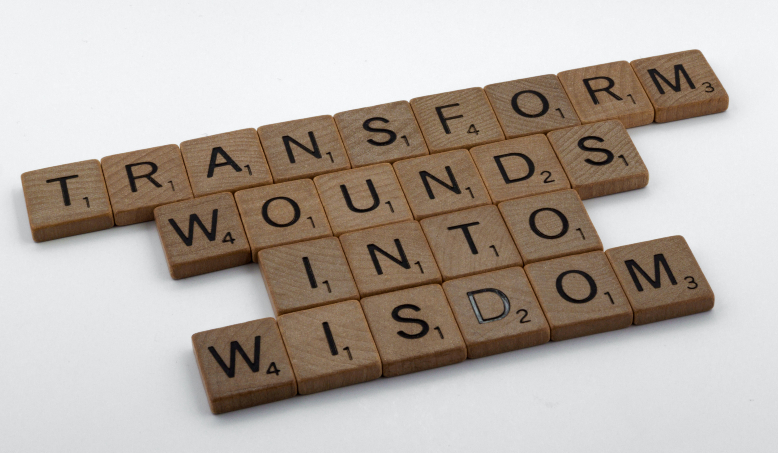A responsibility to face challenges
I believe every person is born with their own set of unique, challenging problems which they inevitably must live with. We can run from our problems, fight them, embrace them. There are many ways we can react, and how we react defines who we are and how our lives plan out.
In fact, I believe how we each react to our problems can impact future generations. No matter what our roles are in society, we each have a responsibility to react to our problems in a way which will positively influence both ourselves and future generations. It is a responsibility that can be, at times, difficult to bear. Requiring us to make not so easy choices, take not so easy paths and lead not so easy lives. Nevertheless, sometimes, not so easy lives are the richest ones: enabling us to reach our fullest potential and become who we truly want to be.
Not so easy lives are the richest ones.
The growth mindset and developing character
Resilience, grit, inner strength. We admire these qualities in people. We look for people with these qualities. We even try to develop these qualities within ourselves. However, fundamentally, each of these qualities are only developed by facing challenging circumstances.
Resilience is the ability to bounce back from adversity and disappointment. We cannot develop resilience without becoming disappointed or facing adversity.
Grit, in my opinion, is the ability to continue persevering towards your objective or end goal despite resistance along the way. We cannot develop grit unless we experience resistance.
Inner strength, I believe, is when we stand by our values and beliefs when challenged by forces outside ourselves. We cannot develop inner strength without having our world view, values, and beliefs challenged.
There is no easy way to develop resilience, grit or inner strength—only hard ways. We could argue about nature and nurture. Some people are “naturally” more resilient, gritty, strong. But that would be too simple. Like many things in life, the relationship between nature and nurture is complicated.
Carol Dweck, the Stanford professor famous for her theory of the “growth mindset”, provided strong evidence to argue that we become able to improve our character and talents by truly believing in our ability to do so. I firmly believe that we can improve our character. It requires us to have a growth mindset, a beginner’s mindset, and the willingness to do what it takes.
Our choices, our identity, and our character
James Clear, the author of Atomic Habits, argues that our habits define who we are. Every choice we make is a vote for the person we wish to become. A vote for the character we want to pass on to future generations. As we grow older, we become increasingly responsible for our habits. We could run from them, fight them, embrace them, or change them.
Stephen Covey, the author of 7 Habits of Highly Effective People, firmly believed in “principled leadership”. The first of the seven habits, the foundation for the other six habits, is the habit of proactivity. Proactivity is the belief that we are in control of how our lives plan out. That by working within our circle of influence and using our unique human endowments—self-awareness, imagination, conscience, and independent will—we can expand our influence and build character. We are not the victim of our environment; we are the creators.
We are not the victim of our environment; we are the creators.
A global pandemic—one of the greatest challenges
This year has been one of the greatest challenges facing my generation. A global pandemic, family and friends becoming separated, sometimes, regrettably, forever. However, we have also seen examples of great character exemplified by individuals, organizations, and educational institutions around the world.
I have classmates who have shown formidable character, simply by showing up every day with a smile on their face at a time when almost everyone has something to be sad about. I have friends who were able to compartmentalize their personal struggles in order to make time for the people they care about. I am a part of organizations who have exemplified agility and resilience at a time when it is most needed.
Even being kind to oneself is a sign of character when, with personal lost, feelings of guilt, work-life imbalances, and increased workload amongst other reasons.
Challenges as opportunities
We want and need people with character. Yet, having greater character often means greater responsibility, and responsibility can be scary. The fear of having our weaknesses exposed when mistakes happen. The pressure to meet expectations and not let everyone down. However, it is pressure which turns sedimentary rocks into invaluable diamonds.
It is pressure which turns sedimentary rocks into invaluable diamonds.
Sylvia Ann Hewlett, author of Executive Presence: The Missing Link Between Merit and Success, cited research conducted by her think-tank, Center for Talent Innovation. This research found that one of the key character traits which showcases leadership material is “grace under fire”: the ability to remain calm under pressure. It is the ability to handle pressure which shows our true value. Challenges are an opportunity to practice handling pressure.
We do not have to face challenges—we get to face challenges.
References
Clear J. (2018). Atomic Habits: An Easy and Proven Way to Build Good Habits and Break Bad Ones. Penguin Random House UK. Vauxhall Bridge Road, London.
https://jamesclear.com/atomic-habits
Covey S. R. (2020). The 7 Habits of Highly Effective People. 3rd Edition. Simon & Schuster UK Ltd. Gray’s Inn Road, London.
https://www.franklincovey.com/the-7-habits/
Dweck C. (2006). Mindset: The New Psychology of Success. Ballantine Books. Penguin Random House.
https://www.amazon.co.uk/Mindset-Psychology-Carol-S-Dweck/dp/0345472322
Hewlett S. A. (2014). Executive Presence: The Missing Link Between Merit and Success. Harper Business. New York, NY.


